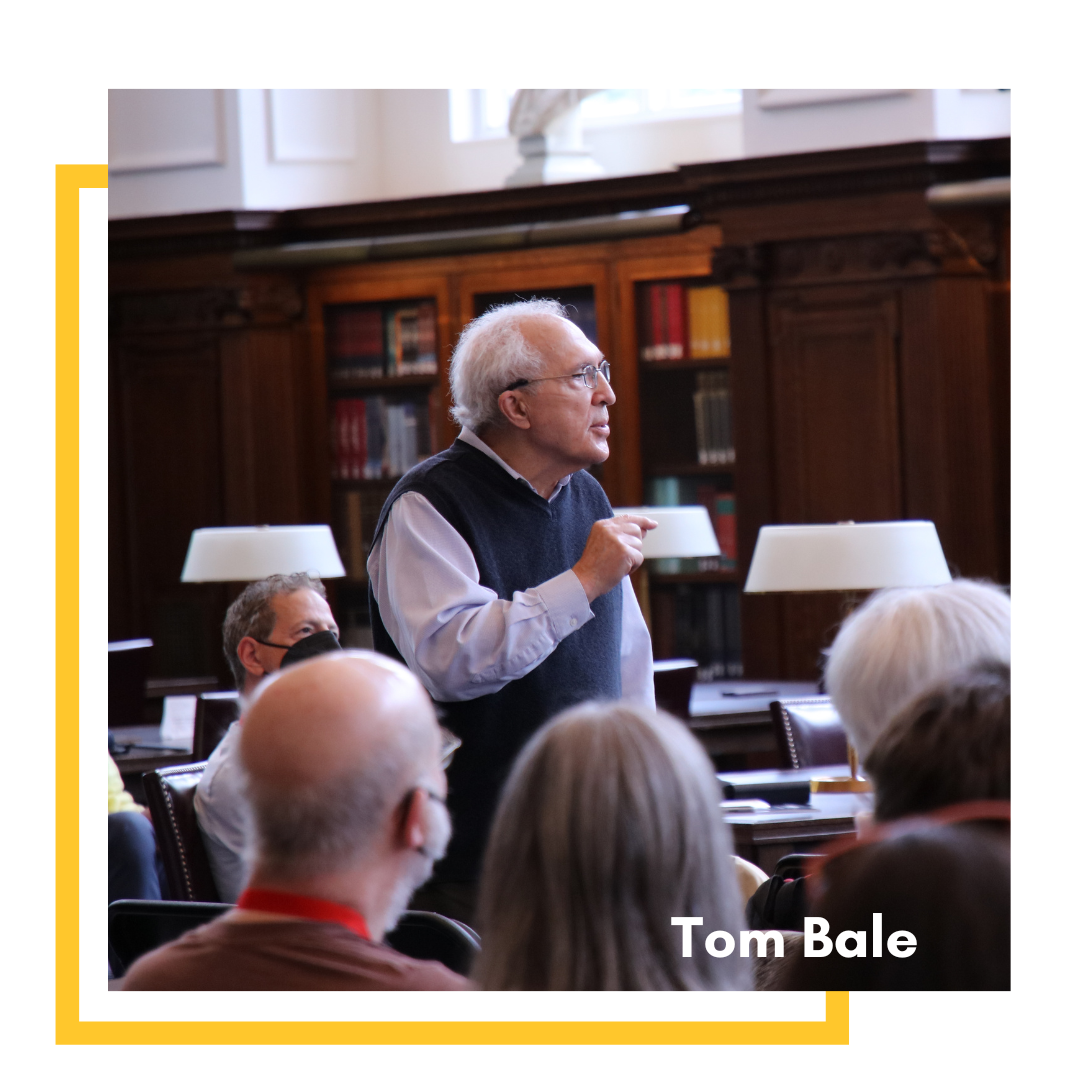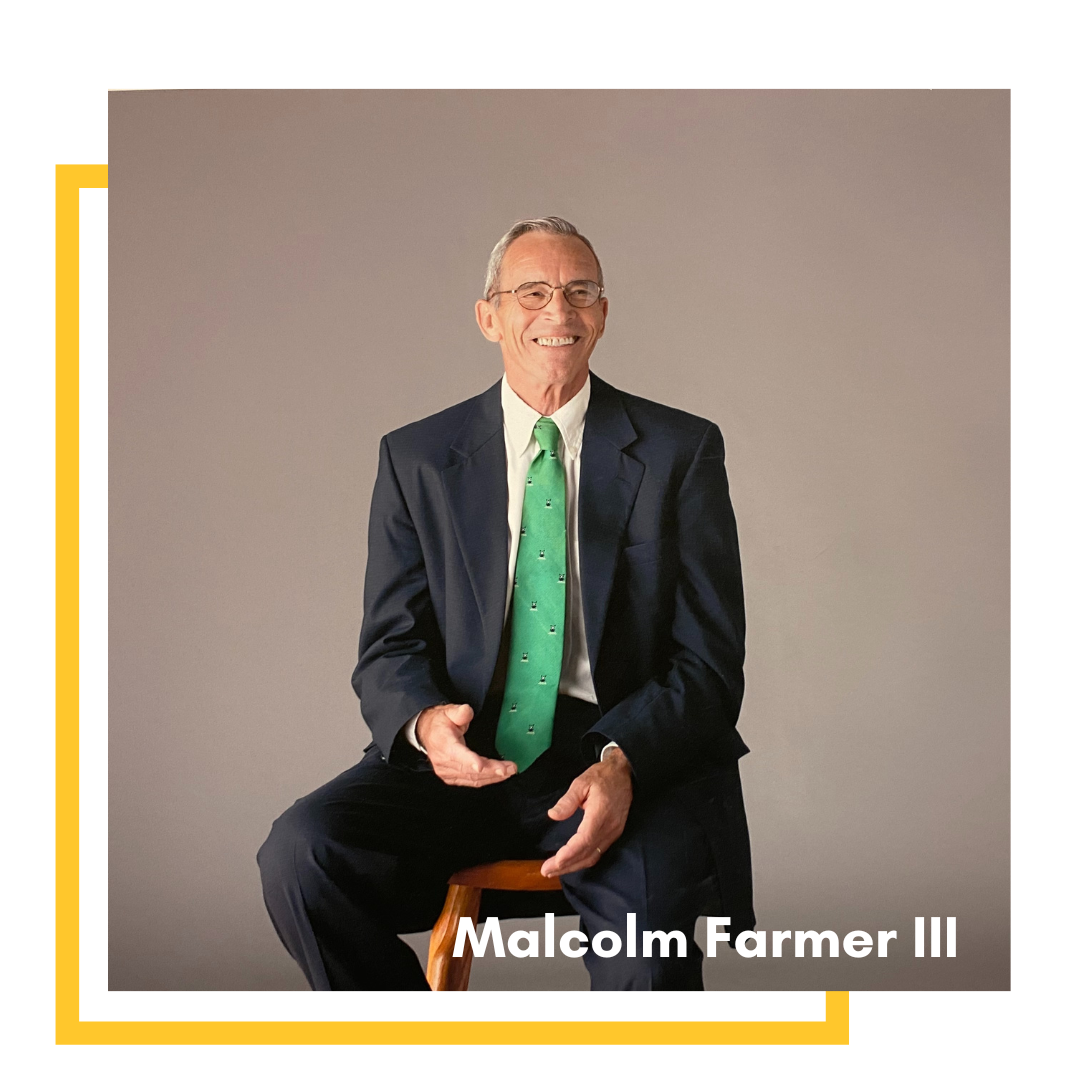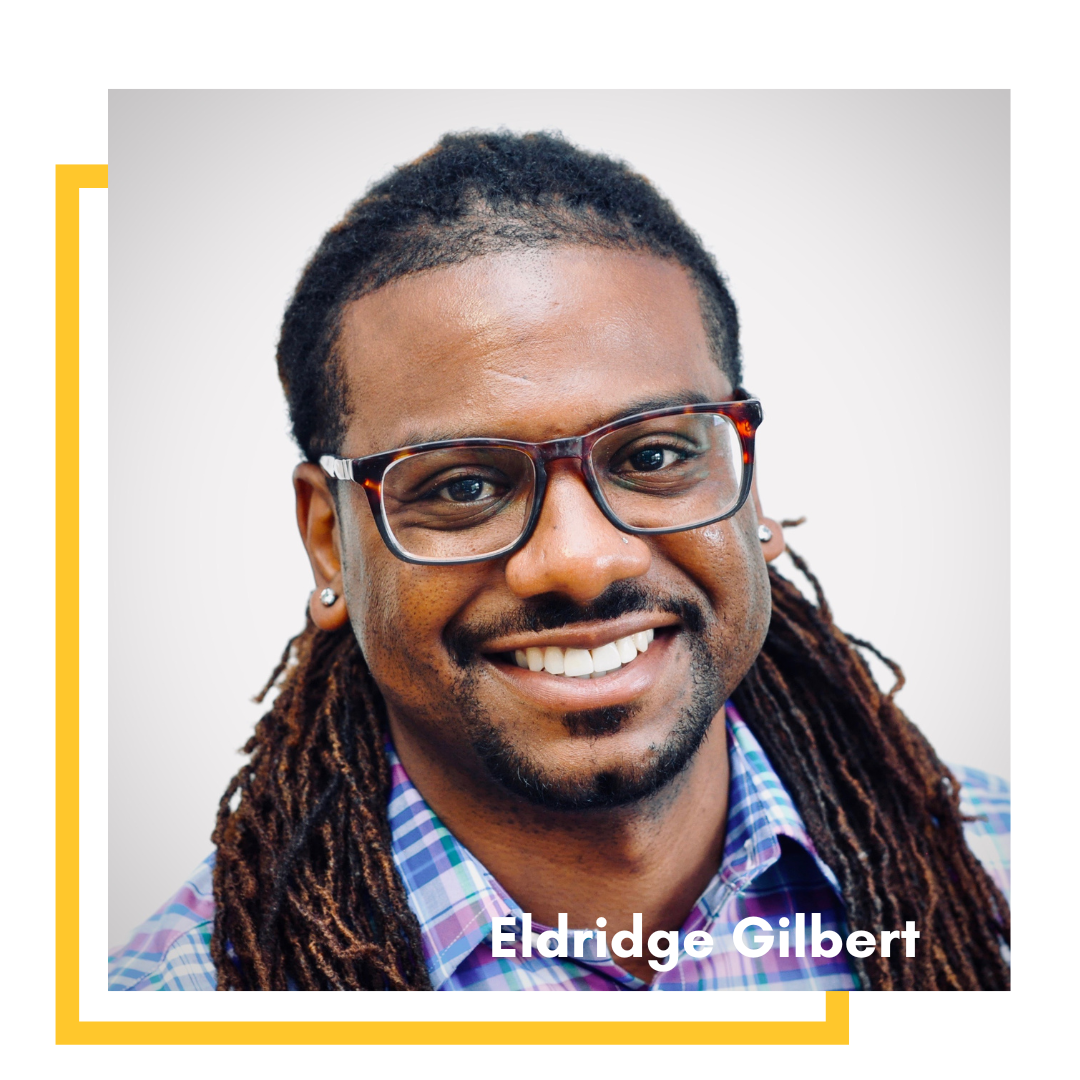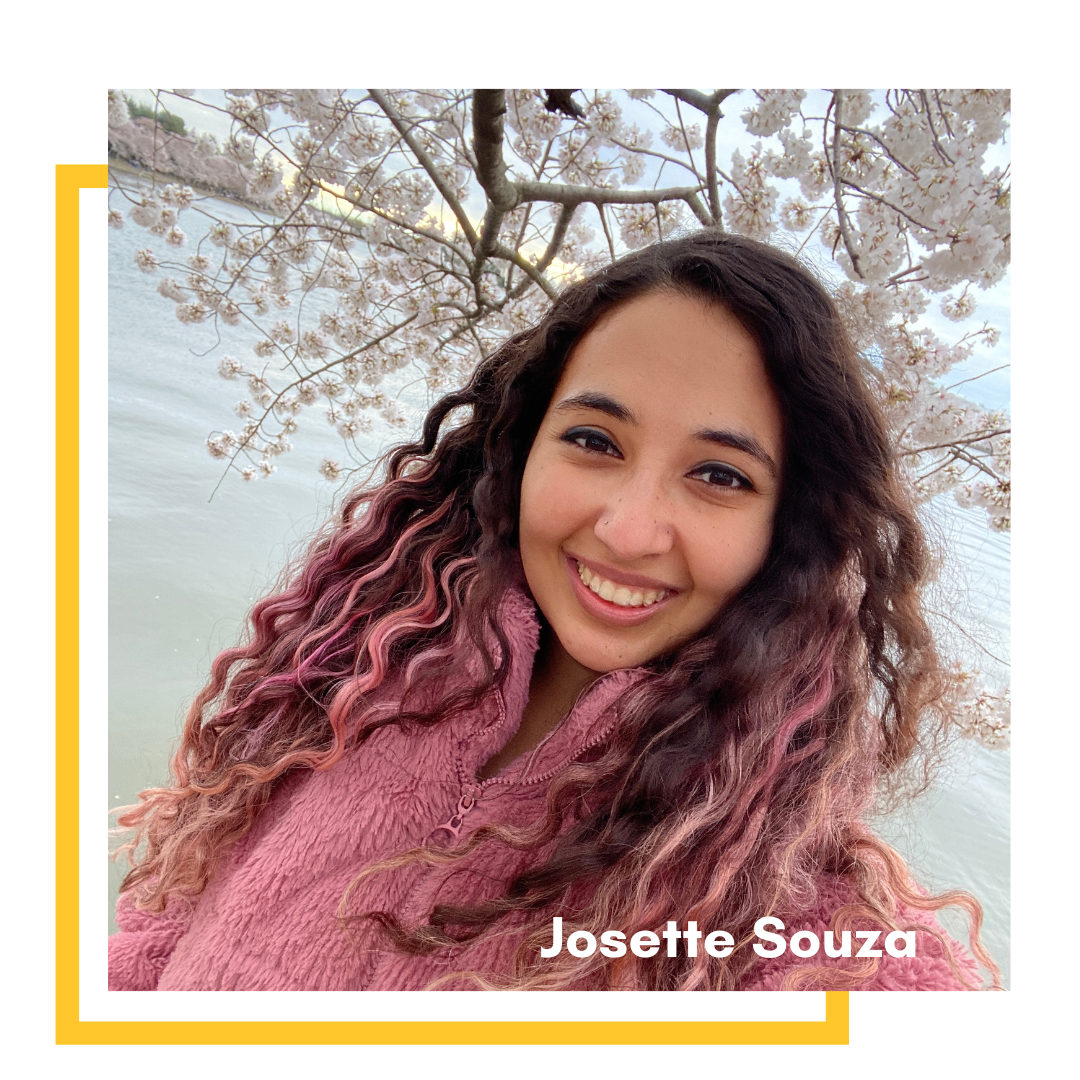Tom Bale

How did you first hear about the Center and how long have you been a Friend of the Center?
I heard about the Center through the Brown’s news.
What does being a Friend of the Center mean to you?
A chance to continue my close interest in civil rights which had an impact on me as a student.
How has the Center impacted your life and perception of the world?
To discover Brown's involvement with the Atlantic slave trade dismayed me. I had to reinvent my connection to the university and learn how slavery impacted Providence, the eastern seaboard, the South and North, Africa, and Europe. I had to accept that it affected my family, the community I grew up in, and my social relationships. Most people I encountered did not want to think about how compromised we are as a people.
What social justice or CSSJ-related work do you do in your community?
As a Friend working in collaboration with several Brown alumni clubs, I have worked to develop presentations about the Center's work encouraging alumni to learn about the many Center programs and encourage their support to help the Center's ongoing work. I have also worked with the Center in a continuing effort to create a musical to tell the story of Brown's complex involvement with slavery.
Emily Dietsch
How did you first hear about the Center and how long have you been a Friend of the Center?
I learned from Brown University's newsfeeds at the time of the Center's founding (2012), and also through my fellow alum Sean Siperstein '06 (through his work as a Friend of the Center). I've been a Friend of the Center since approximately 2019.
What does being a Friend of the Center mean to you?
Solidarity with like-minded good souls, and an ability to help foster impactful work at my alma mater and other organizations that are part of the fold.
How has the Center impacted your life and perception of the world?
As an active hub dedicated to the history and legacy of slavery, the Center has enabled me to connect consistently with emergent knowledge and perspectives. It also continually reminds me of my personal commitment to understanding, discussing, and addressing matters of inequity that stem from historical ills and remain with us today.
What social justice or CSSJ-related work do you do in your community?
Through the Brown University Club of DC (BCDC), an alumni organization, I produce events and conversations that engage topics of social justice. For example, during the pandemic BCDC hosted a virtual conversation that connected the dots between food insecurity and broader patterns of racial inequality. For the past three years, I have also co-hosted a DC-based reading collective rooted in topics of social justice. The collective aims to generate more informed awareness among its members about our chosen topics, and also cultivate greater comfort with having "hard conversations" about race and racism.
Malcolm Farmer III

How did you first hear about the Center and how long have you been a Friend of the Center?
From my friend Mike Van Leesten. For a few years, I participated in a panel on the Civil Rights Movement of the 1960's due to my participation as a lawyer 1965-1967 in Mississippi.
What does being a Friend of the Center mean to you?
Being a Friend of the Center is a way to contribute to Brown's efforts to honestly study the history and impacts of slavery and race relations on capitalism, national and local civilizations, and as part of my efforts, to contribute in a small way to healing its adverse influences. Also to learn and understand the foregoing.
How has the Center impacted your life and perception of the world?
I have learned from Tony Bogues and programs sponsored and conducted by the Center.
What social justice or CSSJ related work do you do in your community?
I have provided financial support to social justice organizations, I also speak to students at independent and charter schools about the Civil Rights Movement experience and meaning. I serve on the board of nonprofits, sponsor and am active in anti-racism programs at St. Mark's School in Southborough, MA which I attended. I also sponsor opportunities like the Farmer-Penn Teaching Fellowships, Bryant University scholarship grant endowment for minority varsity athletes and mentoring awardees, etc.
Eldridge Gilbert

How did you first hear about the Center and how long have you been a Friend of the Center?
I first heard about the Center through an IPC alumni meeting and an email from Dr. Ruth Simmons, president emerita. I first learned of the group in 2018 when I was elected President-Elect for IPC.
What does being a Friend of the Center mean to you?
Having an Inman Page Black Alumni Council (IPC) Executive Team member serve as a Friend is vital to keeping IPC connected to the Center and its work. Personally, it is meaningful because IPC members should embrace the work and research of the Center and helping to facilitate that connection helps us fulfill the mission of IPC.
How has the Center impacted your life and perception of the world?
The Center has expanded my thinking about slavery and its impact across the world, especially the many ways that slavery manifests itself in the present day. For example, the work of the Center has helped me and IPC build bridges with the Latino and Asian alumni communities through our deepened understanding of slavery continues to exist today in throughout the world. As a result, my commitment to social justice and learning has increased. There is a lot more for me to learn about slavery and how it continues to exist in systems and structures throughout the world.
What social justice or CSSJ-related work do you do in your community?
I work in K-12 education and as a leadership consultant/DEI trainer. I often lead trainings around equity and inclusivity for organizations and teams. Issues of social justice come up a lot in my work in my schools and in the individual coaching I do.
Josette Souza

How did you first hear about the Center and how long have you been a Friend of the Center?
I first heard about the Center from a friend back at Brown while I was studying abroad in Ghana in the Fall of 2012. I immediately knew I would somehow get involved the second I got back and that's exactly what happened. I've been a friend in some shape or form since 2018.
What does being a Friend of the Center mean to you?
Being a Friend allows me to continue to stay involved with the CSSJ and Africana Studies, which were both the best parts of my college experience. It also allows me to connect with like-minded and like-hearted people beyond college, which is surprisingly difficult!
How has the Center impacted your life and perception of the world?
My involvement with the Center has been a pivotal force in my life. The Center completely opened up everything I thought was possible in life and directly set me out on the career path I've had since. With the Center, I was able to begin learning the marketing and communications skills I use every day in my career, and it taught me that the work I do (both professionally and in my personal life) can be a joyous, enriching, engaging thing. I loved the Center so much as a student and I wanted everyone to know about and love it as much as I did. Through my involvement with the Center, I was able to learn about one of the most important histories in Rhode Island, the Ivy League, and New England as a whole. I was able to explore how art can be used to heal and connect and repair the past. I was able to travel to South Africa and distant parts of Rhode Island and to libraries and collections I didn't know existed before. And most importantly, it's taught me how to ask questions, how to not stop at a single story, how to complicate the narrative, and how to seek truth and wisdom even when things are difficult.
What social justice or CSSJ related work do you do in your community?
The CSSJ and Africana Studies have shaped every aspect of my life since I was a young teenager at Brown. They have taught me to bring an equity lens to everything I do, and since then I have been able to build opportunities for Black and brown people to gain access to resources in media (mostly TV and radio), museums, news organizations, and arts organizations (mostly dance).